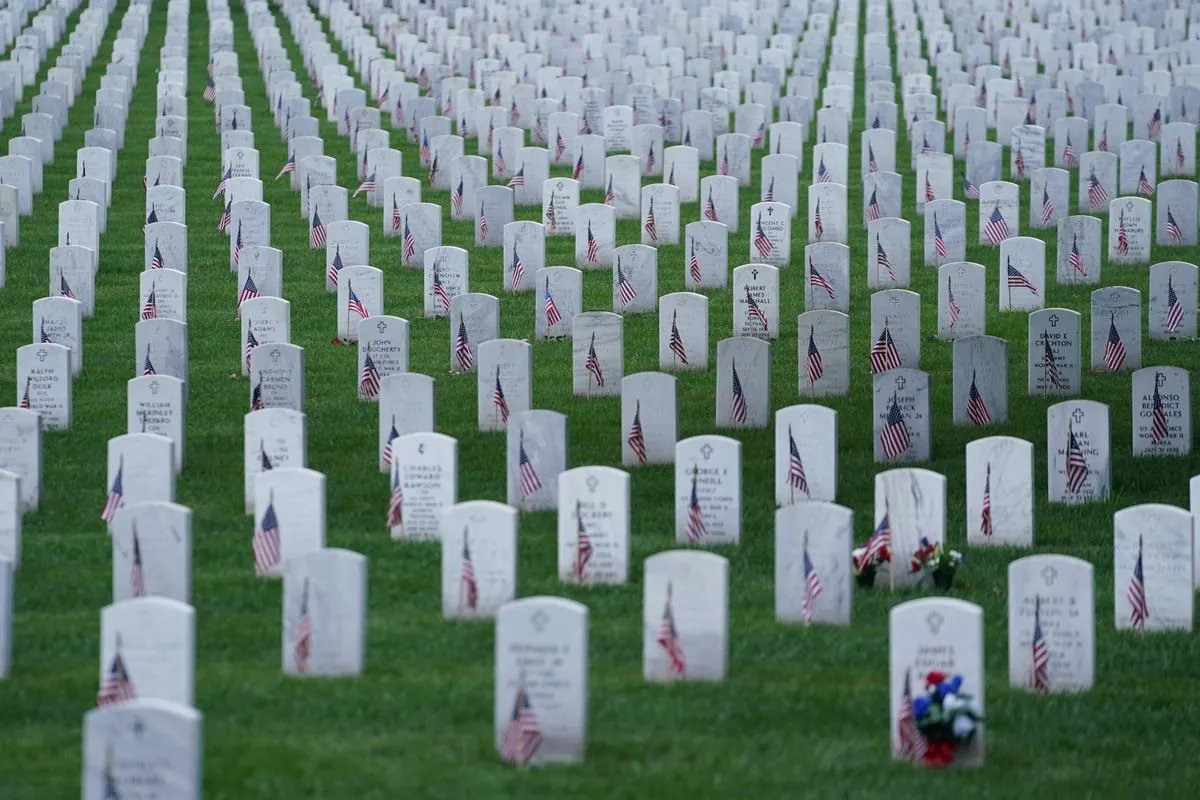The U.S. Army has come to the defense of an Arlington National Cemetery employee who was physically moved aside during a visit by former President Donald Trump three days ago. This rare intervention by the military in a politically charged matter has brought attention to the delicate balance between respecting sacred spaces and political activities.
Arlington National Cemetery, established in 1864 during the American Civil War, is the final resting place for over 400,000 service members and their families. The incident occurred in Section 60, a area dedicated to casualties from recent conflicts, including the Iraq and Afghanistan wars.
The Army's statement emphasized the employee's professionalism and criticized the unfair attacks against her. This response highlights the military's commitment to maintaining its apolitical stance, a principle that has been increasingly challenged in recent years.
The controversy stems from Trump's campaign using footage from the visit in political advertisements, potentially violating federal laws and Pentagon policies that prohibit political activities in certain areas of the cemetery. This incident has reignited concerns about the politicization of military spaces and the potential misuse of armed forces for political gain.
"The fact is that a private photographer was permitted on the premises and for whatever reason an unnamed individual, clearly suffering from a mental health episode, decided to physically block members of President Trump's team during a very solemn ceremony."
The upcoming presidential election, scheduled for November 5, 2024, just 68 days from now, adds significance to this event. It raises questions about the impact on veteran voters, who have historically favored the Republican Party. A Pew Research Center report from April indicated that 63% of military veterans identify with or lean towards the Republican Party.
Arlington National Cemetery, which conducts approximately 6,900 burials each year, has strict policies to maintain its solemn atmosphere. Running, cycling, and picnicking are prohibited on its grounds, underscoring the reverence expected from visitors.
The incident has sparked debate among military officials and veterans. Retired U.S. Navy Admiral James Stavridis expressed disapproval, stating that Section 60 is not a political prop. However, Darin Hoover, father of a Marine killed in Afghanistan, defended Trump's visit, saying that families had invited the former president and appreciated his support.
As the election approaches, this event serves as a reminder of the challenges faced by the U.S. military in maintaining its apolitical nature while respecting the rights of political figures to honor fallen service members. The incident at Arlington National Cemetery, which receives over 3 million visitors annually, will likely continue to be a topic of discussion in the coming weeks.
